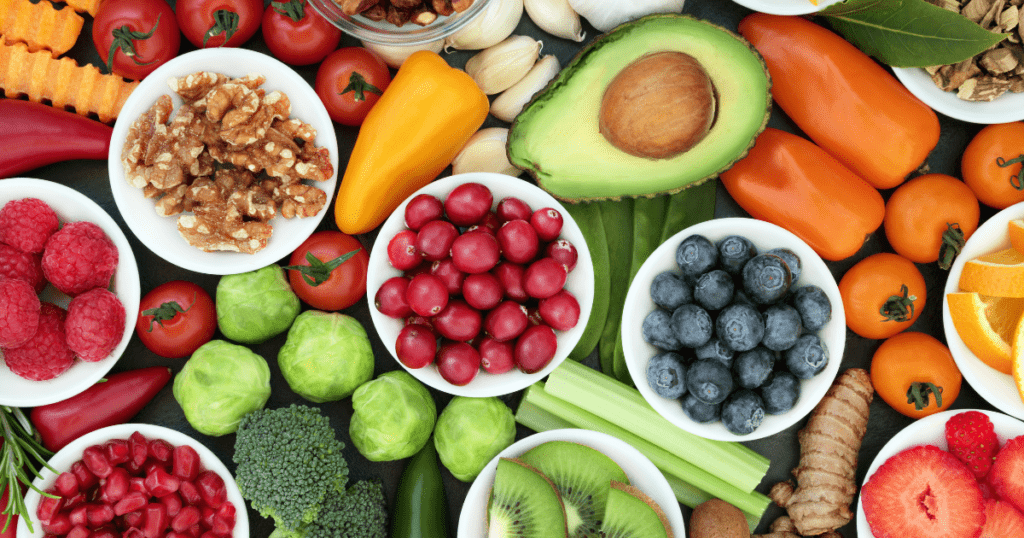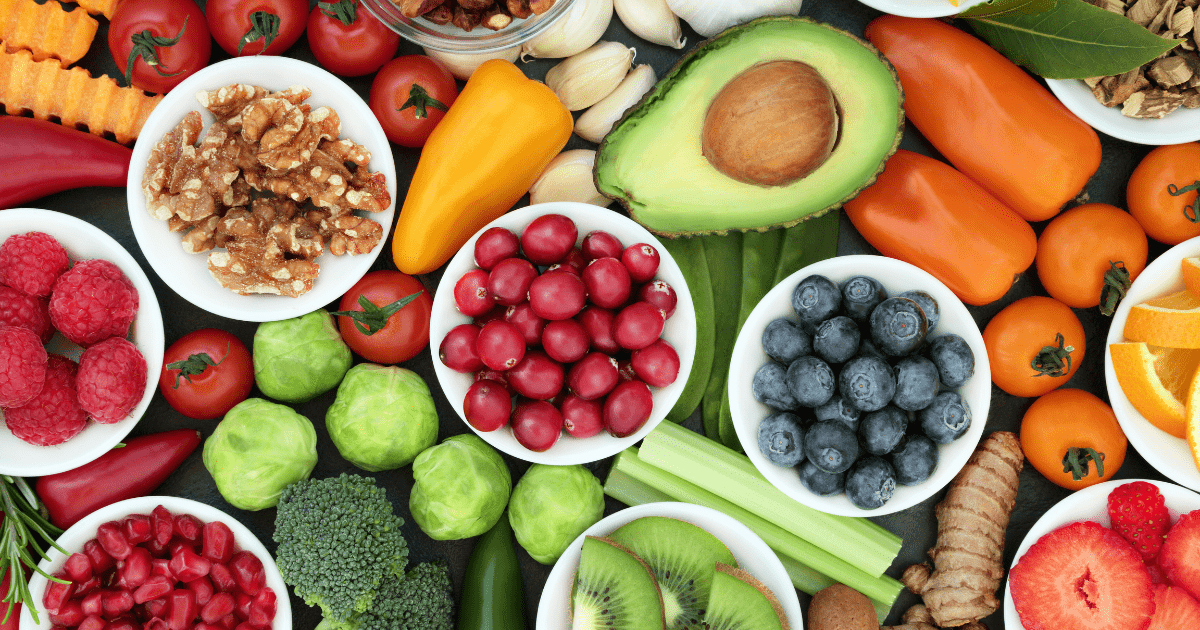How Anti-Inflammatory Foods Can Ward Off Chronic Inflammation
Uncover a diverse range of anti-inflammatory foods and their potential to reduce inflammation, enhance overall well-being, and serve as a foundation for the Mediterranean diet
Living in the 21st century comes with a myriad of health challenges, and one of the most prevalent is chronic inflammation. Doctors and nutritionists have discovered that food is crucial in reducing or aggravating inflammation. This comprehensive guide delves into the importance of anti-inflammatory foods and how to integrate them into your daily diet for optimal health benefits.
Understanding Inflammation: The Good and The Bad
Inflammation is a natural biological response triggered when the body identifies foreign substances, such as microbes or chemicals. It’s a protective mechanism, often characterized by redness, swelling, and pain. Nonetheless, inflammation can be categorized into two forms: acute and chronic.
Chronic Inflammation: A Silent Threat
Acute inflammation is short-lived, responding to immediate threats like infections or injuries. Chronic inflammation, on the other hand, persists over time, even when no apparent threat exists. This persistence can lead to various health problems, including heart disease, arthritis, diabetes, and even mental health conditions like depression.

Chronic inflammation is often silent, yet it plays a significant role in various health conditions. Diseases ranging from obesity, metabolic syndrome, prediabetes, type 2 diabetes, heart disease, inflammatory bowel disease, certain types of cancer, arthritis, and Alzheimer’s disease all have links to chronic inflammation.
Factors such as environmental toxins, aging, lingering viruses, chronic stress, and especially dietary habits contribute to inflammation. Therefore, understanding how to modulate inflammation through diet is vital for better health.
The Role of Diet in Inflammation
Your diet significantly impacts your body’s inflammatory status. Certain foods can exacerbate inflammation, while others can alleviate it. The key is understanding which foods to embrace and which to avoid.
Pro-Inflammatory Foods
Certain foods are known to promote inflammation. These include:
- Refined carbohydrates: such as white bread and pastries,
- Fried foods: like French fries
- Sugar-sweetened beverages: such as soda
- Red and processed meats: such as burgers, steaks, hot dogs, and sausages
- Trans fats: found in margarine, shortening, and lard
Inflammatory Foods and Their Health Risks
These foods not only increase inflammation but are also associated with an elevated risk of chronic diseases like heart disease and type 2 diabetes. Additionally, they contribute to weight gain, another risk factor for inflammation.
Inflammation is the body’s innate immune reaction to safeguard against harm and infections. Nevertheless, persistent inflammation can be a precursor to many health complications. Certain foods can exacerbate inflammation, especially when consumed in excess.
Foods Linked to Increased Inflammation
- Sugary Beverages: Drinks high in sugar, such as soda and some fruit juices, can lead to obesity and increase inflammation.
- Refined Carbohydrates: White bread, pastries, and other foods made with
Anti-Inflammatory Foods
On the other end of the spectrum, several foods have been identified to reduce inflammation. These include:
- Berries: Strawberries, blueberries, raspberries, and blackberries are rich in antioxidants and fiber.
- Fish: Fatty fish like salmon, mackerel, tuna, and sardines are high in omega-3 fatty acids.
- Leafy Greens: Spinach, kale, and collards contain antioxidants.
- Nuts: Almonds and walnuts are rich in beneficial fats and dietary fiber.
- Fruits: Oranges, strawberries, cherries, and blueberries have high antioxidant content.
These dietary options diminish inflammation, reduce the likelihood of enduring chronic illnesses, and enhance general well-being.
How Cooking Methods Impact Inflammation
The way we prepare our food can also influence its inflammatory potential. For instance, grilling, especially red meat, can create compounds associated with cancer and inflammation. On the other hand, cooking methods like baking, steaming, or stir-frying are healthier options that don’t promote inflammation.
Navigating The World of Processed Foods
Frequently, processed foods include concealed sugars and detrimental fats that have the potential to intensify inflammation. Therefore, it’s essential to read labels carefully and avoid foods with added sugars or trans fats.
The Power of Anti-Inflammatory Foods
The inclusion of anti-inflammatory foods in your diet can have profound effects on your health. Here are some powerhouse foods that you should consider:
- Berries: They are rich in fiber, antioxidants, and phytochemicals that help reduce inflammation.
- Salmon: is a superb provider of protein and is rich in omega-3 fatty acids. These nutrients are beneficial in fighting inflammation and managing cholesterol levels.
- Broccoli: This veggie is rich in sulforaphane, an antioxidant that decreases inflammation.
- Avocado: Loaded with heart-healthy monounsaturated fats, vitamin E, and carotenoids, avocados can help reduce inflammation.
- Tomato: High in vitamin C, potassium, and lycopene, tomatoes are excellent for fighting inflammation.
The Mediterranean Diet: A Template for Anti-Inflammatory Eating
The Mediterranean diet is an excellent choice for those looking for a structured eating plan. This diet emphasizes fruits, vegetables, nuts, whole grains, fish, and healthy oils, all known for their anti-inflammatory properties.
Substitution: A Practical Approach to Anti-Inflammatory Eating
One strategy for those who want to start gradually is substitution: replacing inflammatory foods with anti-inflammatory alternatives. For instance, you can replace charcuterie boards with vegetable slices and hummus or swap French fries for baked sweet potatoes.
Conclusion
Chronic inflammation is a silent threat to our health, but our diet can significantly manage it. Understanding which foods cause inflammation and embracing anti-inflammatory foods can significantly improve our health and prevent various chronic diseases.
Remember, a holistic dietary pattern, not one food, helps reduce inflammation. However, small changes can turn into lasting habits that can transform your health.
Sources:
Harvard Health Publishing. (2021). Foods that fight inflammation. (https://www.health.harvard.edu/staying-healthy/foods-that-fight-inflammation)
Lara Snead, L. Anti-Inflammatory Diet. John Hopkins. (https://www.hopkinsmedicine.org/health/wellness-and-prevention/anti-inflammatory-diet).
MacLean, K.(2023).9 healthy eating tips that can help reduce inflammation. (2023). UC Davis Health. (https://health.ucdavis.edu/blog/good-food/9-healthy-eating-tips-that-can-help-reduce-inflammation/2023/11).
The George Washington University Hospital. These 10 Foods Help Fight Inflammation. (https://www.gwhospital.com/about/blog/these-10-foods-help-fight-inflammation).
Category
- Health Issues (72)
- Healthy Diet (48)
- Herbs for Health (11)
- Mental Health (33)
- Skin Care (20)

